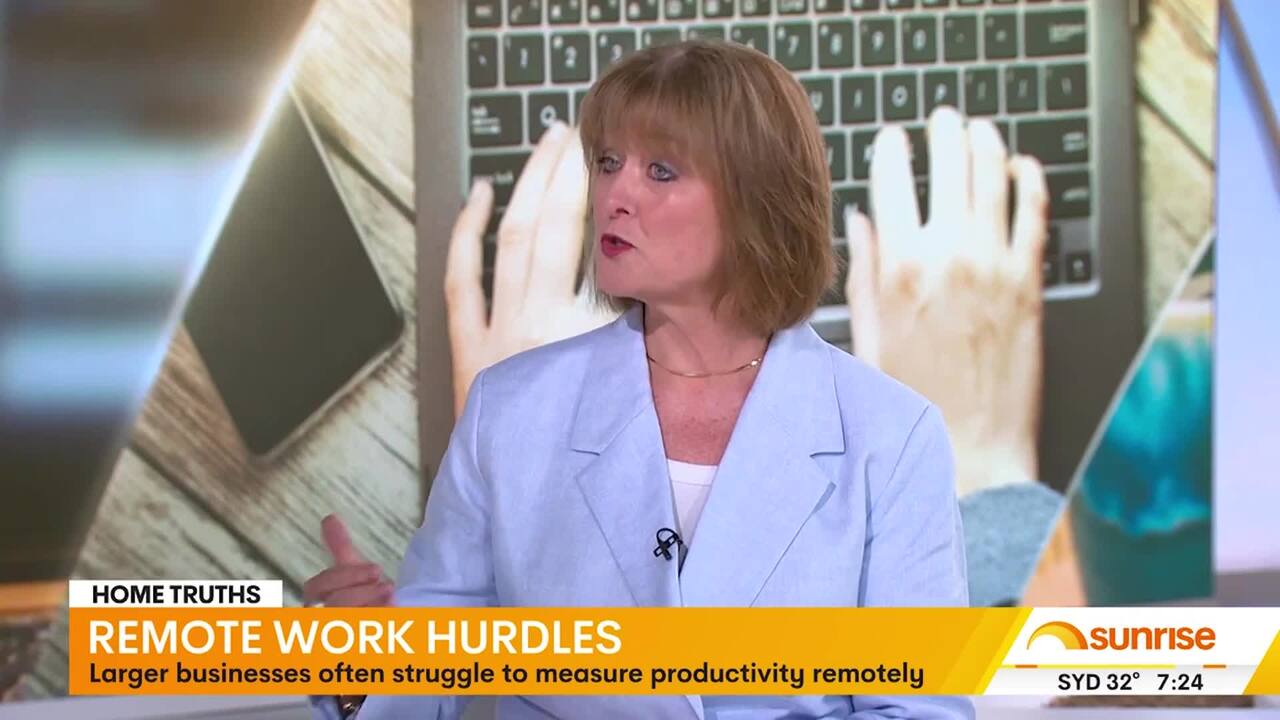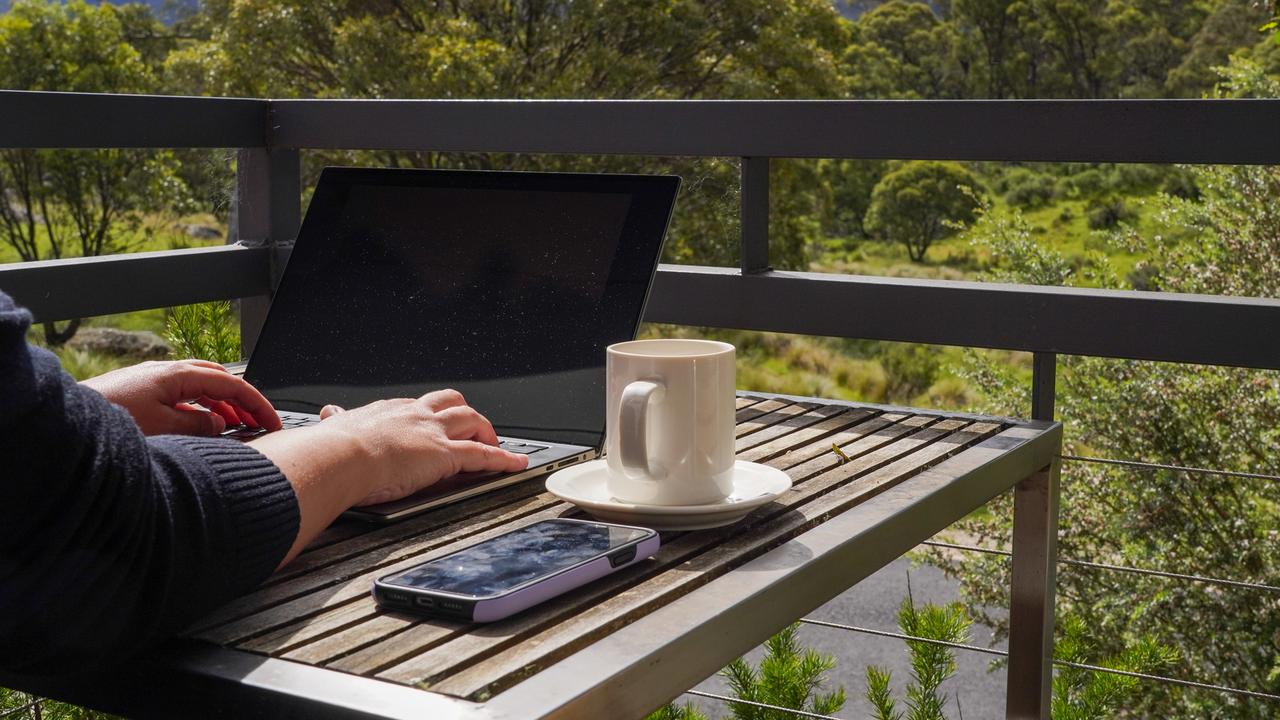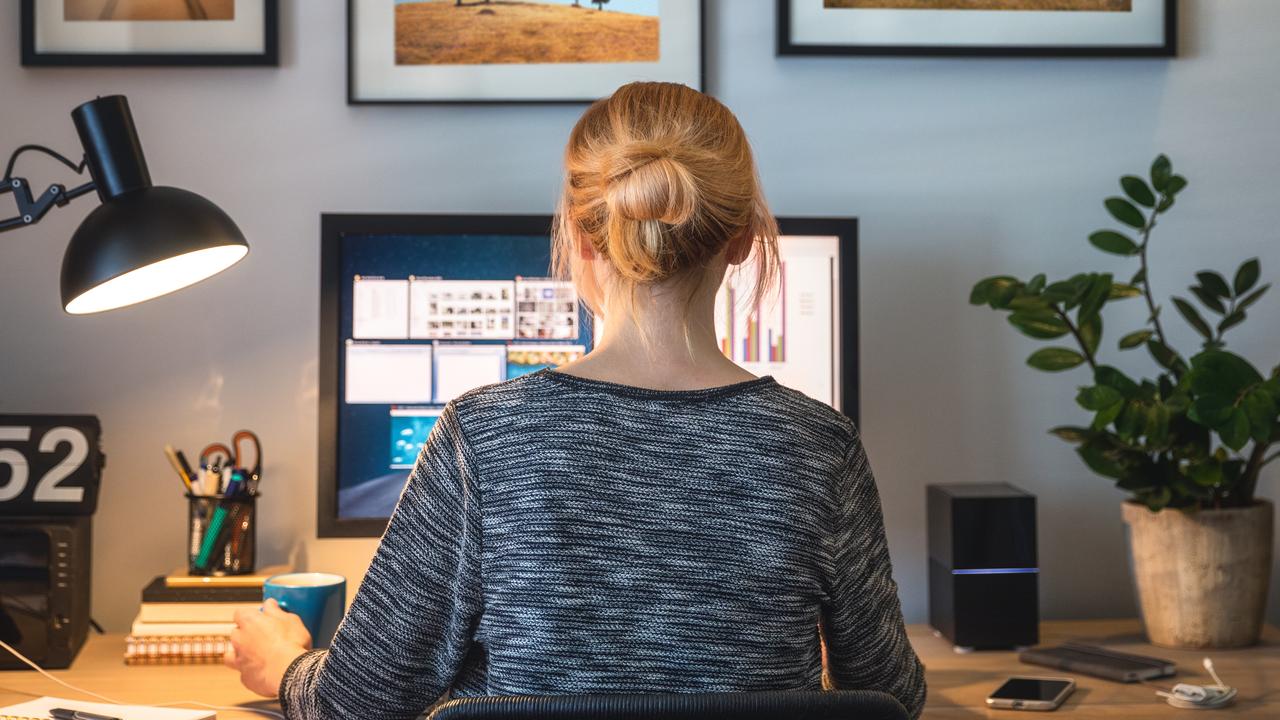‘Failed experiment’: Young employee slams working from home
Working from home in Australia has been branded a “failed experiment”, with claims workers aren’t being honest about their productivity.

At Work
Don't miss out on the headlines from At Work. Followed categories will be added to My News.
A young Aussie is going viral for calling working from home a “failed experiment” and declaring workers shouldn’t feel entitled to have the option of remote work.
While working from home has become more common since the pandemic, there has also been recent resistance to it.
Amazon, Dell, Tabcorp, and Flight Centre were just some of the major companies that announced new return-to-office mandates in 2024.
In general, the consensus seems to be that employers want workers back, but workers want the flexibility.
However, Shez, who describes herself online as someone with “a lot of opinions”, took to social media to slam working from home.
“Working from home is a failed corporate social experiment,” she said.


MORE: The best work-from-home jobs in Australia
Shez argued that people need to be honest with themselves and not pretend they are more productive when working from home.
“Are you more productive working or more productive folding laundry?” she asked.
The young worker claimed that working from home is a “killer” for corporate culture and that she’s had so many “productive” water cooler office chats that she couldn’t get at home.
“Absolutely nothing like going up to someone’s desk and asking them a question that can be answered in two seconds,” she said.
“Your productivity definitely takes a hit when no one’s looking.”

MORE: How to negotiate working from home
Shez explained that working from home can be painful because you don’t get those instant responses and often have to create meetings or ring a co-worker to get basic questions answered.
She also argued that working from home isn’t all it’s cracked up to be because you don’t get to “showcase your personality”.
She explained that an “important part of moving up on the corporate ladder” is letting your personality shine, which can be hard to do from home.
“It doesn’t come through via a little Teams camera,” she claimed.

Shez said that the worst part of working from home becoming common is that people think they’re “entitled” to it now rather than using it as a “privilege” or for special occasions.
Naturally, the young worker’s opinion immediately sparked debate online.
One commenter claimed they were more “productive” at home with both their work and their household duties.
She replied that she didn’t want to be “disrespectful” but pointed out that the worker was admitting to “doing household duties” when working from home, instead of just concentrating on work.
Another claimed they were more efficient when they worked from home and argued it just came down to “work ethic” and didn’t matter where you work from.
Someone else said it depends how you “define” productive but added they get less done in the office because of the “distractions” and chatter.
One worker praised Shez for her opinion and said, “Finally, someone is saying being productive while WFH does not mean folding laundry or putting on dinner. It’s one of the many reasons I left corporate”.
Meanwhile, another wrote that they couldn’t “disagree more” with Shez and said their team’s output is up 200 per cent since they introduced working from home.
Recruitment expert Roxanne Calder told news.com.au that the “perspective from employers” is that they would prefer for workers to return to offices full-time.


She explained that, while employers are still “happy” to accommodate working from home and flexibility, the general gist is that they’d prefer it if they didn’t have to.
Ms Calder argued that employees often mistake the fact that bosses want them to return to the office because they want “control” over them. She said it just comes down to the environment that produces the best work.
“People confuse it with control, it isn’t about that, it is a superficial assumption. It is about the productivity level, collaborations and humans need humans,” she said.
Ms Calder said that employers are always chasing high retention rates from employees, and they will only get that if people come into work and find “purpose” and forge friendships and relationships with their workers.
“If you’re isolated and working from home, there’s always the chance you’ll start looking for something else,” she said.
Working from home has been happening since the 1960s and 1970s, but it used to be called “remote work”, with Ms Calder claiming title switch to “working from home” isn’t a positive thing.
“Maybe it is the word home, we need to change it. It’d help if we didn’t say ‘working from home’ the connotation to employers is working from bed,” she said.
More Coverage
Originally published as ‘Failed experiment’: Young employee slams working from home









